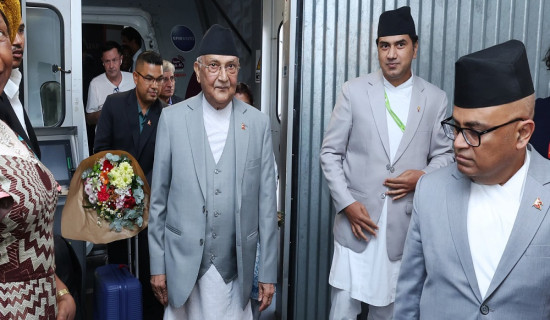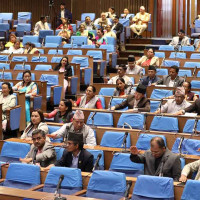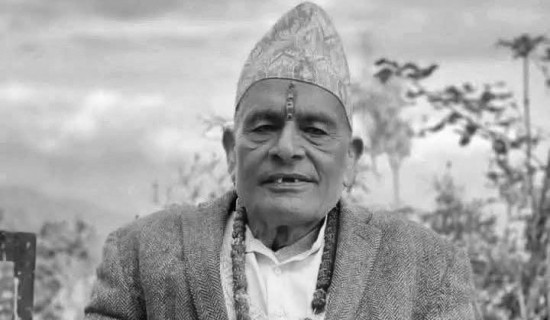- Monday, 30 June 2025
How News Outlets Fuel Distrust
News outlets are seen as stewards of historical integrity. History sculpted by partisan minds does not allow truth to surface. Only the brave and the bold among minds that are independent in outlook, intellectually knowledgeable and critically analytical help record history on an accurate course. Is a news outlet a truth messenger or a propaganda peddler? Media image stutters if partnered with secretive agencies that find public access to some facts inconvenient. While governments doing so might, under certain grave circumstances, be acceptable, the fall of news channels chorusing or going silent with the governing class on partisan lines cannot be condoned.
Media representation and characterisation of events and personalities make or mar their own credibility. Examples are in obscene abundance in many countries. As far as the powers that be are concerned, the unpalatable truth tends to get dismissed with a casual glance at best and, at worst, buried deep down in oblivion. BBC, CNN, ABC, and the printed press of the Western mode, for example, were by and large silent over a pro-Russian gathering participated by thousands of Germans in Berlin on May 9. They called for peace with Vladimir Putin and commended the immense sacrifices made by Russia, then the Soviet Union, in defeating Nazism in Germany. Some 29 million Russians—equivalent to the present-day Nepal’s entire population—lost their lives during the Second World War.
Sealed lips, inkless pen
Recent mass protests in Taiwan went unreported in the international media, which seemed to be constrained by the fact that many Taiwanese were not for confrontation with mainland China by seeking independence. Corporate greed compromises content. The press plays sealed lips and pen without ink when stories are stamped “sensitive” by unscrupulous employers. Some ignore the issue and others present narratives that leave audiences to go through the garden path. Such press avoids digging into the past much if the topics related to slavery, suppression and mass killings of indigenous populations, their forebears committed and never duly apologised for down the centuries. Invasion, violence, encroachment, enslavement, suppression, decimation of indigenous cultures, opium wars and gunboat diplomacy were perpetrated.
Hence, navigating distorted information becomes cumbersome and riddled with disinformation. Embedded journalism is not confined to war stories but also in patronised, directed and guided briefings lapped up by the obliging sections of the press. Deliberately misleading or even disinforming the public cannot be supported. At least, lies should not be funnelled at any cost. Should stringent regulation and censorship be in place, the situation would be different. Voices under duress might get lost in thin air, but to be party to knowingly disseminate falsehoods in the guise of facts is wrong for any journalist worth professional salt.
Many sections of the much-vaunted media know which side of their bread is toasted, buttered and jammed. They refrain from reporting on the architects of free trade or auctions now making sharp U-turns from what they championed so loudly and enforced since the 1990s. The goal post is now being shifted to suit the convenience of the powerful. Creation and destruction of revolutions are at times the result of price tags and press gags. A turnback invites the wrath of those left behind amidst trauma and turmoil. Inequality intensifies when a minuscule number lives in extreme wealth and the influence it carries. Olympic boycotts in the past demonstrated how the abstaining nations became proactive in mobilising the media under their influence for berating the oraganisers and participants, with the primary purpose of finding faults at every corner. Poking fun in every corner and highlighting “controversial” decisions become staple of the partisan press.
Under the conditions, the vast majority of people do not have adequate access to an independent press. What the rich and the oligarchs say or shun becomes an official source of news and non-news. The distorted communication track focuses on what the higher class says and supports. Others are expected to be awed and inspired in celebration of their dreams coming true. Editorial meddling by the revenue department or the board of directors might fit the press as a protectorate in the pockets of an organisational boss, who holds the master key to all nays and ayes. That would be a toxic transaction.
Western media are obsessed with dwelling upon things they see as China's fall, economic slump, human rights violations, move to attack Taiwan, South China Sea aggression and fear generated in the neighbourhood. The same media are, however, very reticent about the military coups instigated or engineered in countries not complying with their agendas or unwilling to part with natural resources rights on outrageously exploitative terms. Terms like religious fundamentalists”, “terrorists,” and “nationalists” from particular religions are frequently circulated in the media, which rarely find such groups in other religions of different denominations. Most societies have their pros and cons, with ups and downs as well as unflattering indulgences.
Do-not-disturb sign
In the first quarter of the 21st century, news outlets in even major democracies are losing their social and intellectual pre-eminence as reliable, non-partisan platforms for professional integrity, unbiased content and prompt response to any breach in free and fair presentations. Time is not far off when keen search for news will no longer be an exclusive regular staple. Concentrated news search will be an outdated pastime in societies with increasingly nuclear tastes that pay little or no attention to what happens or who is doing what if individual interests are not involved. By the early 2040s, do-not-disturb signs will be the new communication culture.
Although physical proximity has a great influence, electronic connectivity will be the new ball game. Broadcasters will pray that listeners and viewers will not migrate to non-news channels instead of staying “tuned” to their channel. As interest in news recedes, the few who bother to give attention to it regularly will be a tribe too small to play the role of big influencers. Propaganda agencies and the obliging press seek the opinions of convenient sources and experts tangoing with a match-fix. In the process, the public loses faith in both. If questioning the media is treated as heresy, it destroys the very foundations of free thinking and speech. Demons pride themselves on disinformation as a weapon to serve their dubious agenda—overt or covert.
(Professor Kharel specialises in political communication.)

















